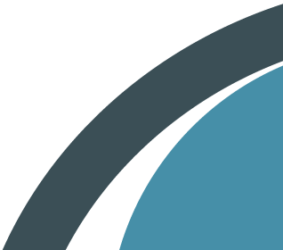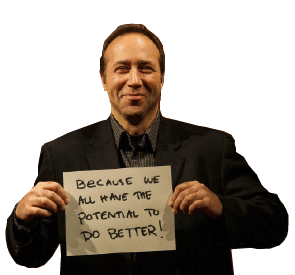
Overcoming La La La I Can’t Hear You
In any organization (or society) there is an unlabeled group of people that hereafter we will call the “data prevention group.” Their prime motive is to protect the status quo. You know the type – not receptive to your show and tell, no matter how compelling it may be. Though these people may project a professional facade, what you really see is “La la la I can’t hear you.” The disregard for new information might come from a single influential person or it may come from a larger group, perhaps an entire herd. Whichever the case, the outcome is the same. It’s as though you are running the last segment of the Olympic torch relay, looking forward to the moment you touch torch to caldron, sparking the opening ceremony. Finally, your moment has come, you get to tell your story, share your data, and be listened to. But, your progress is halted and the ceremony never begins.
The data prevention group might be well intentioned in safeguarding the status quo. But, in a world that doesn’t sit still this can spell disaster for an organization. The business landscape and customer ecosystem are forever changing. People disregard the reality outside their organization at their own peril. Put simply, if you make soup people no longer purchase its best to find out why. Is it soup? Is it my soup? Crafty marketers might wish to simply refresh labels to shift perception. Maybe even have a soup “spokesperson” deliver messages and ensure others speak on point. But, in an increasingly transparent, connected, and humane world, those efforts will only produce short term gains, if at all.
Truth has a funny way of surfacing, even when you try to suppress it.
Truth has a funny way of surfacing, even when you try to suppress it. Some politicians and “leaders” on the wrong side of history have learned this lesson the hard way. Too many others have not and the list continues to grow, most recently with unsafe drinking water in Flint, Michigan.
The la la la treatment happens within organizations and in the broader community, even the online community. So, what do you do when if you are on the right side of history and too few are listening? Here are a few actionable ideas. If you have any to add, tweet this message and share your addition. Please do the same on Facebook or LinkedIn.
- Be critical of statements you hear that are untrue; offer relevant facts in their place
- Be supportive of data and facts over opinions and ideology; be vocal about this with the friends, colleagues, family and fellow citizens
- Build alliances around the truth, starting with common ground you agree on
- Wait for the moment when the data prevention group may be more receptive to hearing your message
- Give up, leave, check out (I don’t really recommend this one, but it is an option)
- Look for alignment by finding a new path, a campaign or another initiative you can hitch your data to; there may be a natural fit
- Build empathy by focusing on the people the data represents (make the audience come alive inside the organization or in the minds of others, whether the issue relates to social justice or the audience the organization serves)
- Make data more visual (Vision trumps all other senses as John Medina shares in his book, Brain Rules).
- Create soundbites from your data, at least initially to bait the hook. (You can feed the fish later with more data once you have gained the attention of the data prevention group)
- Build a story from your data that makes it easy for others to absorb and even retell
- Use humor and give people the opportunity to laugh (Thank you, Don Smith of FutureSmith, for this suggested addition)
Whether the data you promulgate represents a social justice issue or a shift in strategy within the organization, it is important to be mindful as opponents transition to becoming proponents. As Desmond Tutu says in his book by a similar title, “Without forgiveness, there’s no future.” You don’t want people to oppose a good idea whose time has come simply because they feel punished or demoralized in shifting their beliefs. So, take a page from the Chinese social playbook and allow others to preserve their dignity and avoid embarrassment (save face). This is increasingly important in the future where more and more people will shift away from harmful consumption and production patterns, behaviors that create conflict and marginalize people, and money stops corrupting politics. I wish you much luck in overcoming “la la la I can’t hear you” wherever your travels and conversations take you.
about the author
Gregory Olson is the author of The Experience Design Blueprint, a book about designing better experiences and then making them come true. As discussed in Chapter 8 of The Experience Design Blueprint, every organization has a Promise Delivery System. That is the invisible system by which an organization makes and keeps promises (or doesn’t). One component of the Promise Delivery System is Insights and Validation. Another is Apply Learning. When “La la la I can’t hear you” is alive and well inside an organization, the organization’s Promise Delivery System is breaking down – those two components in particular – stop working effectively. Left uncorrected the organization may end up building a lumpy snowball of an organization and lose relevance over time.
His latest book is L’ impossi preneurs: A Hopeful Journey Through Tomorrow, a light-hearted and deadly serious book about a brighter future where we live more meaningful lives, governments invest in people and sustainable progress, and technology serves humans. Ideas in L’ impossi preneurs that relate to this article include Truth Sculpture, Data Observatory, Propaganda for Good Network, Truth Machine Intelligence Service, Truth Ticker, and more.
 Gregory Olson founded strategy and design firm Delightability, LLC. with the belief that if you delight customers then success will follow. He believes that we all have the potential to do better, as individuals, organizations, and communities, but sometimes we need a little help. Gregory also serves as a volunteer board member for Oikocredit Northwest, a support association for social investor and financial institution, Oikocredit International.
Gregory Olson founded strategy and design firm Delightability, LLC. with the belief that if you delight customers then success will follow. He believes that we all have the potential to do better, as individuals, organizations, and communities, but sometimes we need a little help. Gregory also serves as a volunteer board member for Oikocredit Northwest, a support association for social investor and financial institution, Oikocredit International.



